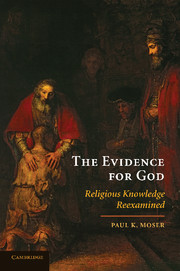5 - Diversity, Evil, and Defeat
Published online by Cambridge University Press: 05 June 2012
Summary
“If we hold that living religion arises at the point where ultimate reality manifests itself to the human spirit, then obviously our understanding of religion will necessarily be determined by the view we take of that ultimate reality and of the relationship with the human spirit into which it enters.”
– H.H. Farmer 1954, pp. 26–7.The wilderness parable in the Introduction prompted a question about the availability of an intentional rescuer for the people lost in Hells Canyon. If the rescuer has a distinctive pedagogical aim for the lost people – specifically, for their being morally transformed in the rescue effort – then the rescue strategy on offer may be subtle and elusive rather than explicit and straightforward. In that case, the rescue process may be rather messy, given the need for the lost people to be challenged morally and changed in various ways. As a result, we should not expect a simple recipe for the rescue, as if the rescue process were akin to baking a simple cake.
The rescuer may allow parts of Hells Canyon to be overgrown with thickets of thorns to highlight both the lost people's need for a rescuer and the inadequacy of their own strategies for a rescue. In other words, the rescuer may allow the surrounding conditions to deteriorate, even toward futility, in order to reveal that the power of the lost people is not genuinely life giving, whereas the power of the rescuer is.
- Type
- Chapter
- Information
- The Evidence for GodReligious Knowledge Reexamined, pp. 231 - 266Publisher: Cambridge University PressPrint publication year: 2009



